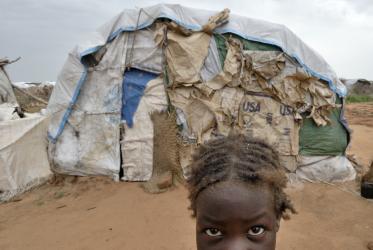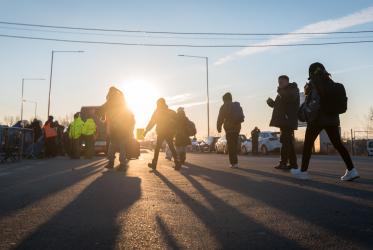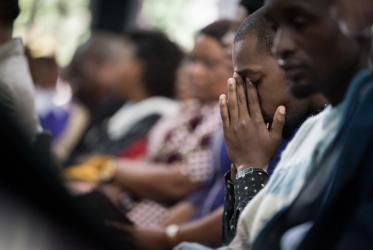Letter to the President of the Republic of Sudan, Lieutenant-General Omar Hassan
Ahmad al-Bashir, 7 May, 2004
Your Excellency,
The World Council of Churches, as you may be aware, has a long history of
involvement in Sudan. In 1971 the WCC, together with the All Africa Conference
of Churches, was instrumental in brokering the Addis Ababa Peace Accord. It
has since closely monitored the developments in respect of the conflict between
North and South Sudan and the efforts made to achieve a just and lasting peace.
As the ecumenical movement's Special Envoy for Sudan I have taken special interest
in pursuing the universal church agenda for peace and reconciliation. Sudan
continues to remain close to my heart.
The WCC and its member churches, including those in Sudan, were therefore
greatly encouraged at the progress made under the auspices of IGAD by the government
of Sudan and the Sudan People's Liberation Movement to bring an end
to Sudan's 20 years of civil war. This was a major breakthrough despite the fact
that certain key issues like the status of the "marginalized areas" - the Nuba
mountains, Southern Blue Nile and Abyee; sharing of political power and resources;
and the application of Shariah laws, given the provisions of the Machakos Protocol,
were only partially addressed. This reflected the positive approach of the parties
to resolve intricately contentious issues.
The escalation of fighting between the forces of the government of Sudan and
the rebel groups in early February 2004 in the Darfur region therefore took all
peace-loving people by surprise. As a result, over 700,000 Sudanese were internally
displaced and another 110,000 were forced to cross the border into neighbouring
Chad. According to reports received, the Untied Nations has been able
to provide relief only to a small section of the people because of lack of access in
the troubled areas, which makes it difficult to reach the suffering victims.
The World Council of Churches therefore urges Your Excellency to work for
an immediate end to hostilities and to take steps to resolve the conflict through
a negotiated settlement so that much-needed humanitarian relief is able to reach
those who are in desperate need of such assistance. We also urge you to take steps
to put an end to human rights violations and to ensure that those guilty of committing
acts of violence and human rights abuses are brought to justice. As General
Secretary of the World Council of Churches, I wish to assure Your Excellency that
the doors to my office are always open and we are willing to consider and help in
promoting any proposal or suggestion you may have to contribute to an early end
to the conflict so that peace can prevail in the country.
Finally, the WCC, in keeping with the Machakos Protocol, would be failing
in its duties if it did not emphasize the urgent need for the government of Sudan
and the Sudan People's Liberation Movement to undertake work on the drafting
of a new constitution that is based on respect for human rights, justice and equality.
Assuring, as always, the people of Sudan of our prayers and support.
Yours sincerely,
Rev. Dr Samuel Kobia
General Secretary



